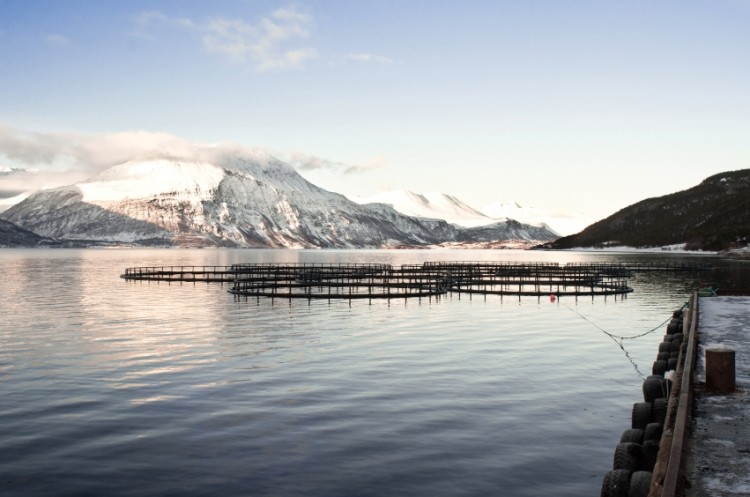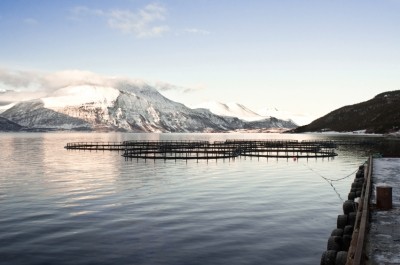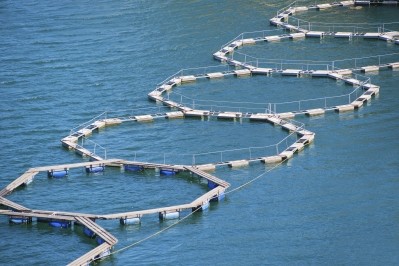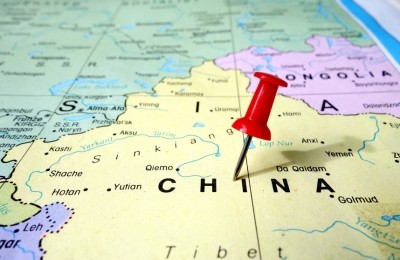Seafood Watch calls farmed salmon certified by ASC a ‘good alternative’

The announcement, made earlier this month, raised the rating for farmed salmon that were produced in a manner certified by the Aquaculture Stewardship Council (ASC) to a “good alternative,” said the organizations.
California-based-Seafood Watch evaluates other certification organizations to its standards in an effort to support independent eco-certification programs, the group said. The assessment of ASC requirements was done using a “realistic worst-case scenario” and found that the ASC standards score moderate to good on most criteria.
The ASC is an independent, not-for-profit organization started by the World Wildlife Fund and the Sustainable Trade Initiative in an effort to manage certification for responsible fish farming globally.
The change in rating came after an operational review that the ASC did of its own practices, said Contessa Kellogg-Winters, communications director for ASC. “Upon the conclusion of the review of the salmon standard, ASC updated or added 10 indicators to further improve the environmental and social performance of farms in the program, including a reduction in the amount of wild fish allowed in aquafeed used to feed farmed salmon,” she added.
“Seafood Watch issued their recommendation to buy ASC salmon upon completion of the Operational Review of the ASC Salmon Standard,” she told FeedNavigator. “In the report, Seafood Watch credits the requirements for data collection and performance based standards, including parameters for the responsible use of natural resources, the use of responsible feed and restrictions on the use of antibiotics for farms certified to the ASC standard as the basis for the deferral.”
Certification review details
The rating is designed to having meaning for consumers purchasing farmed salmon, said Kellogg-Winters. “They can feel confident their selection has been certified to the highest social and environmental standard,” she added.
“That the program has been recognized as equivalent or better than Seafood Watch’s yellow rating – the color associated with their Good Alternative category – and recommends that consumers purchase ASC certified salmon to support healthy ecosystems and thriving communities, is further validation of the strength of the ASC Salmon Standard,” she said.
The operation review of the salmon standard started in 2015, she said.
Salmon products produced to that standard are available globally, she said. Currently it is estimated that about 25% of the farm-raised salmon produced is done so in accordance with ASC certification requirements.
Additionally, all producers taking part in the Global Salmon Initiative (GSI) have agreed to attain ASC certification, said Kellogg-Winters. “This will not only result in environmental improvements across the globe, but also more product in stores,” she added.
Taking part in the ASC certification process is intended to give producers a way to distinguish the work they do, she said. Farms have to meet both environmental criteria and social obligations regarding employees and local communities to earn the certification.
“In the case of ASC certified salmon farms, each has been independently audited against a comprehensive standard that measures both social and environmental impacts across eight principles, using 43 criteria, 154 performance indicators and 521 compliance points,” she said.
Working with Seafood Watch and other organizations that evaluate or offer ratings is another way that ASC can bolster the environmental and social responsibility of aquaculture producers, she said.
“The recommendation that consumers buy ASC certified salmon by one of the most respected conservation organizations in the world is further confirmation of the credibility and effectiveness of the ASC program,” said Kellogg-Winters.
Feed focus
Looking forward, there is a role for feed producers to play in increasing the sustainability of aquaculture, said Kellogg-Winters.
“Reducing the impacts associated with fish feed would significantly improve the performance of the aquaculture industry and we hope to see more feed producers improving the sustainability of their products,” she said.
The ASC is working on setting requirements for the sourcing of marine-based ingredients used in feed, she said. The goal of that effort is to have more feed mills join a standards program and improve their practices.
“In addition to strict limits to minimize the use of wild fish as an ingredient for feed in the current standards, ASC is working on a feed standard to be released at the end of 2017 that will make aquafeeds more responsible,” she said. “The new standard will define requirements for both responsible factory practices and responsible ingredients for the three main ingredient groups used in fish feed: marine ingredients, terrestrial plant ingredients and terrestrial animal ingredients.”








